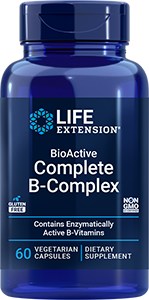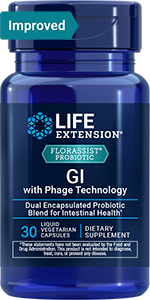
Newsletter
Newsletter
Increased Intake of Antioxidants by People with High Blood Pressure Associated with Lower Risk of Dying During More Than a Decade

High blood pressure affects approximately 16% of the world’s population and has been estimated to cause nearly 20% of all deaths.
A study reported on February 28, 2024, in Biological Trace Element Research found a lower risk of dying during up to 13 years of follow-up among men and women with high blood pressure (hypertension) who consumed a high amount of antioxidant nutrients.
The study included 16,240 participants in one of six cycles of the National Health and Nutrition Examination Survey (NHANES). Researchers analyzed responses to 24-hour dietary recall interviews for levels of vitamins A, C and E, magnesium, selenium and zinc, which were used to calculate dietary antioxidant quality scores.
Among the participants, there were 2,710 deaths from all causes from 2007 through 2019. Individuals whose dietary antioxidant quality scores were categorized as high (on a scale that included high, medium or low) had a 17% lower adjusted risk of dying during follow-up compared with those whose intake scored low. A separate analysis of people aged 60 years and older showed high antioxidant intake scores were associated with a 19% lower risk of mortality.
The results for high antioxidant scores were most significant in women; those consuming high levels of antioxidants had a 23% lower mortality risk compared to women with low scores.
How do antioxidants support heart health and lifespan? Authors Jiahong Wang and colleagues remarked that oxidative stress and inflammation can lead to the development and progression of high blood pressure. Antioxidant nutrients may help protect against these factors.
“To the best of our knowledge, this is the first retrospective cohort study using a large, representative sample of the USA to explore the association between overall dietary antioxidant nutrients and all-cause mortality in hypertensive participants,” they wrote. “Dietary intervention with antioxidant intake may be an effective adjunct to the clinical treatment of hypertension.”
Products
Apply What You’ve Learned: Blood Pressure
- Blood pressure describes the pressure the blood exerts on the vessel walls and is reported as systolic over diastolic pressure. Systolic blood pressure is the pressure that occurs during a heartbeat and diastolic pressure is measured between heartbeats, while the heart is resting.
- High blood pressure (hypertension) is currently defined as blood pressure of 130/80 mmHg or higher.2 Hypertension contributes to cardiovascular disease, including heart attack and stroke, heart failure, kidney disease, vision loss, cognitive decline, dementia and sexual dysfunction.3-5 Life Extension suggests 115/75 mmHg as a healthy blood pressure target.
- Lifestyle modifications that support healthy blood pressure include adopting the Dietary Approaches to Stop Hypertension (DASH) or Mediterranean diets, lowering the intake of sodium, alcohol and calories, reducing body weight, participating in regular physician-approved activity and managing stress.6
- Additions to the diet to help support healthy blood pressure include quercetin, melatonin, omega-3 fatty acids, magnesium and other nutrients.7-11
References
- Wang J et al. Biol Trace Elem Res. 2024 Feb 28.
- American Heart Association editorial staff. American Heart Association. 2023 May 30. https://www.heart.org/en/health-topics/high-blood-pressure/understanding-blood-pressure-readings
- Bhargava M et al. J Hum Hypertens. 2012 Feb;26(2):71-83.
- Iadecola C et al. Circ Res. 2019 Mar 29;124(7):1025-1044.
- Lou IX et al. Vasc Health Risk Manag. 2023 Nov 3:19:691-705.
- Verma N et al. J Clin Hypertens (Greenwich). 2021 Jul;23(7):1275-1283.
- Larson AJ et al. Adv Nutr. 2012 Jan;3(1):39-46.
- Grossman E et al. Vasc Health Risk Manag. 2011:7:577-84.
- Zhang X et al. J Am Heart Assoc. 2022 Jun 7;11(11):e025071.
- Zhang X et al. Hypertension. 2016 Aug;68(2):324-33.
- Han H et al. Nutr J. 2017 May 5;16(1):26.
Featured Life Extension Magazine® Article
Reduce Nighttime Bathroom Visits
By Michael Downey
Getting up during the night to use the bathroom at least once is a common occurrence among older men. However, a new nutrient formula containing five natural ingredients could help reduce those visits to once per night or less.
In a trial conducted by Life Extension, 30 men with lower urinary tract symptoms and nocturia (waking up at night to empty the bladder) received a formula that contained beta-sitosterol, Pygeum bark extract, the carotenoid lycopene, the mineral boron and the hormone melatonin. While 37% of the men reported getting up two to three times per night to empty their bladders prior to beginning the trial, none visited the bathroom more than once by the end of the 60-day treatment period.
Read Full Article
What's Hot
Health Concern
Reducing systolic pressure to below 120 mmHg lowered cardiovascular events in trial
Findings presented on November 13 at the American Heart Association Scientific Sessions 2023 support the recommendation of achieving a systolic blood pressure of less than 120 mmHg to help protect against cardiovascular events.

High Blood Pressure (Hypertension)
A systematic approach to blood pressure control that combines natural interventions and lifestyle strategies with prescription antihypertensive drugs.
Related Life Extension Magazine® Articles

Add Five More Years with One Therapy
Huge numbers of heart attacks and strokes occur in those who fail to keep systolic blood pressure below 120-130 mmHg. One study shows total life expectancy to be five years longer in those who achieve optimal blood pressure control.

Magnesium Deficit and Hypertension
In the U.S., more than 63% of people do not ingest enough magnesium to meet minimum daily requirements. New research shows how insufficient magnesium intake contributes to the hypertension epidemic afflicting aging adults.
Life Extension Magazine® Issue Now Online
A remarkable number of healthy-longevity findings have been published over the past 18 months.




